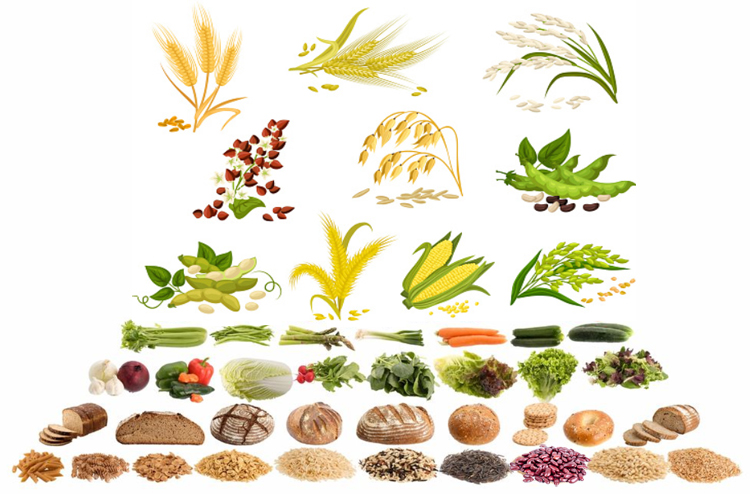
Vegetarians, vegans and anybody else wishing to increase their intake of plant-based foods should consider plant-based protein sources. Several examples of plant-based protein sources are provided below:
- Legumes: Excellent sources of plant-based protein include beans, lentils and peas. They can be used into a variety of recipes including salads, veggie burgers, soups and stews.
- Nuts and seeds: are a wonderful source of protein, beneficial fats and fibre. Some examples of nuts and seeds are almonds, walnuts, chia seeds, flaxseeds and chia seeds. They can be blend into smoothies, porridge, yoghurt or nut butter.
- Whole Grains: Whole grains are a good source of fibre and protein. Examples of whole grains are quinoa, oats, brown rice and whole wheat bread.
- Tofu and tempeh: are high-protein soy-based foods that can add to soups, salads, stir-fries and other recipes.
- Seitan: It is a strong source of protein and may be utilised in a number of meals including stir-fries, soups and salads. Seitan is often referr to as wheat gluten.
- Spelt, Kamut, Teff and other ancient grains: These ancient grains include fibre, vitamins and minerals in addition to being good sources of plant-based protein.
- Mycoprotein: is a form of protein that is generated from the fungus Fusarium venenatum. It is a rich source of protein and a tasty substitute for foods that normally contain meat.
- Plant-based protein powders: are available on the market and can be used as supplements to improve protein intake. Examples include pea protein, brown rice protein and hemp protein.
As a result, it’s crucial to include a variety of plant-based protein sources in your diet to guarantee that you’re getting all the essential amino acids your body requires. It’s important to keep in mind that plant-based protein sources might not always provide all of the essential amino acids the body needs.









